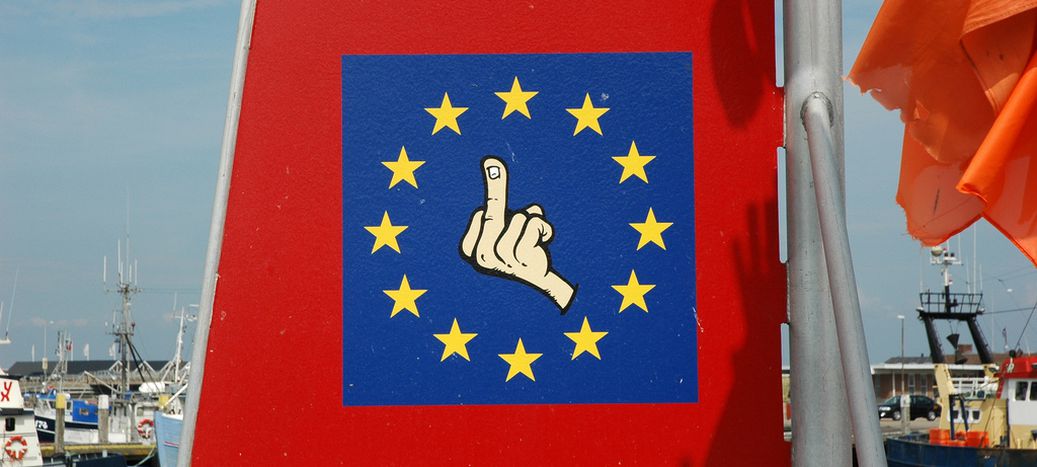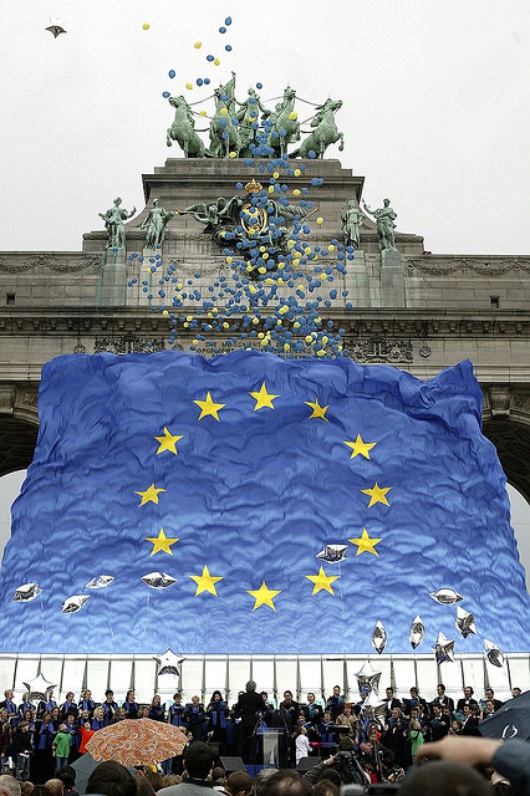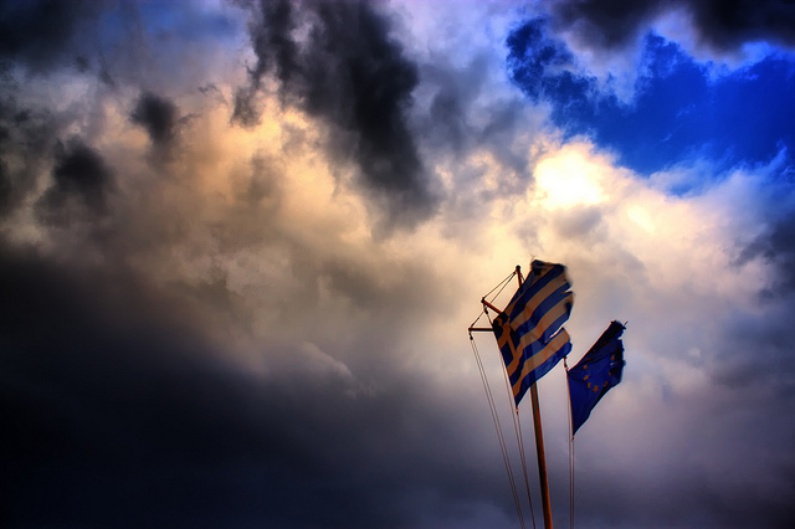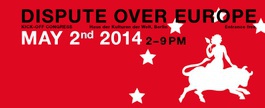
Dispute over Europe: The EU-rope Confusion and the Politics of Consensus
Published on
There is a certain confusion between the EU and Europe which serves several anti-democratic interests. Consensus politics governs Brussels and any critique of the institutions is being censored out from the public sphere as primitive Euroscepticism. It is no wonder that another record low in voters' turnout is expected on May 25th.
'Europe' and the 'European Union' have become perhaps the most confused terminological couple in European politics. Europe refers either simply to the continent or to the tradition of the European civilization, a certain set of values, a common history. The EU is, on the other hand, a set of institutions that can bring us closer to those values. Of course, they can also fail in doing so.
Europeans united in happy confusion?
The EU-rope confusion can be a sign of hope or optimism. However, there are also obvious undemocratic interests to obfuscate the difference. While the European Commission is perfectly content to push things through without taking public opinion into consideration, the national governments are happy to be able to shift responsibility onto Brussels for unpopular policies, which were often designed and agreed upon in the European Council with their direct participation. Brussels has become a synonym for all the closed doors behind which Europe's national politicians seek refuge from the oh-so-volatile public opinion, opting instead for the company of ‘sensible’ technocrats and experts.
Much has been said about the democratic deficit of the EU institutions. One of the forms of this deficit is a deficit of critique. I don't claim that Brussels is not criticized enough. But bashing Brussels has become even more abundant than its unconditional praising. Both phenomena are quite useless for democracy as they remain a plain dichotomy, evading the critical detail. Posing the question 'Are you for or against Europe?' is a form of EU-populism. The question that should be asked is 'What should be improved in the current configuration of the EU institutions in order to come a step closer to Europe as an ideal?'
Political consensus among all parties
The virtual non-existence of the pan-European public sphere is not only exploited by nationalist and EU-populists, it also leads to consensual politics. Consensus is, for me, the exact opposite of democracy. Whoever saw the recent debates among the four candidates for the presidency of the EU commission will probably agree with me. Apart from voicing some minor, personal disagreements, the debates displayed a politically and democratically troubling consensus. It was as entertaining as it was shocking to see Martin Schulz and Guy Verhofstadt – the one social democrat the other liberal – debating on who is the real socialist. When Verhofstadt says we must "use Europe as an engine for growth" his distributions of means and ends is clear. For him, it is Europe for economic growth and not the other way around. The social-democrats' candidate Schulz did not protest.
 The EU-rope confusion is a powerful rhetorical tool to disable unpleasant EU-critique. The question to what extent the EU in its current form represents the ideal of Europe is debatable and must be debated. Instead, almost every EU-critical voice, whether from the right or left side of the political spectrum is quickly, all too quickly banished from the public sphere and discredited as Euroscepticism. Consensus politicians say 'Eurosceptic' when they mean nationalist, primitive, crazy. And they won't speak to the "Eurosceptics" because they don't share his 'fundamental world-view' (Jean-Claude Juncker, European People’s Party) or her 'understanding of democracy' (Ska Keller, European Green Party). Certain politicians, whose split personality allows them to think themselves democrats and, at the same time, avoid 'uneasy' political debates about fundamental presuppositions, are way closer to craziness than most 'Eurosceptics'. I prefer a parliament of 'crazies' to a parliament of uniformity that provides politicians like Juncker with a stable and decent, i.e. apolitical working environment. A parliament is something else.
The EU-rope confusion is a powerful rhetorical tool to disable unpleasant EU-critique. The question to what extent the EU in its current form represents the ideal of Europe is debatable and must be debated. Instead, almost every EU-critical voice, whether from the right or left side of the political spectrum is quickly, all too quickly banished from the public sphere and discredited as Euroscepticism. Consensus politicians say 'Eurosceptic' when they mean nationalist, primitive, crazy. And they won't speak to the "Eurosceptics" because they don't share his 'fundamental world-view' (Jean-Claude Juncker, European People’s Party) or her 'understanding of democracy' (Ska Keller, European Green Party). Certain politicians, whose split personality allows them to think themselves democrats and, at the same time, avoid 'uneasy' political debates about fundamental presuppositions, are way closer to craziness than most 'Eurosceptics'. I prefer a parliament of 'crazies' to a parliament of uniformity that provides politicians like Juncker with a stable and decent, i.e. apolitical working environment. A parliament is something else.
EU populists purposely ignore EU sceptics
There is a mythical fear that giving Eurosceptics' arguments a stage will open some flood gates and then god knows what will happen. After all, the people from the street oh so liable to ideological manipulation might all vote for them and we must therefore protect them from what they must not hear. Cultivating this fear is but another form of EU-populism.
Besides, ignoring the 'Eurosceptics' and their critique is a direct play into their hands. Yes, I might have a problem speaking to somebody who argues for legalizing murder or rape. But how much of 'Euroscepticism' can be as easily discredited? I believe it would do European politics only good, if our politicians would refute or at least address in detail the scepticism of those who criticize the EU. If we cannot bring forward a strong argument against their claims, then we should care less that there is something wrong with their values; we should instead be worried that there might be something wrong with ours.
 The crisis we have now is primarily a crisis of democracy. But any crisis is also a moment of opportunity. In ancient Greek, the term ‘crisis’ described the decisive moment in which a patient would either live or die. I believe that the European Union has a unique chance to become the best model of democratic alternative to the growing power of private interest on the one hand and of totalitarian state economies on the other. I also believe that Europeans have the best chance if we stick together. But European integration must go beyond the expansion of governance systems and the consolidation of economic structures. We also need a democratic political integration. When will Brussels become the capital of a pan-European democratic community with the European Parliament as a major institution? Well, later is too late.
The crisis we have now is primarily a crisis of democracy. But any crisis is also a moment of opportunity. In ancient Greek, the term ‘crisis’ described the decisive moment in which a patient would either live or die. I believe that the European Union has a unique chance to become the best model of democratic alternative to the growing power of private interest on the one hand and of totalitarian state economies on the other. I also believe that Europeans have the best chance if we stick together. But European integration must go beyond the expansion of governance systems and the consolidation of economic structures. We also need a democratic political integration. When will Brussels become the capital of a pan-European democratic community with the European Parliament as a major institution? Well, later is too late.
There is much to do before we can wholeheartedly call this Union 'European'. But it has to be called European already. Fake it 'til you make it.
CAFÉBABEL BERLIN DISPUTES ABOUT EUROPE
 Cafébabel Berlin is an official media partner of Dispute over Europe. Following May 2, 2014, you will be able to read articles centered on the congress as well as interviews with the panel members. More updates can be found on Facebook and Twitter.
Cafébabel Berlin is an official media partner of Dispute over Europe. Following May 2, 2014, you will be able to read articles centered on the congress as well as interviews with the panel members. More updates can be found on Facebook and Twitter.



